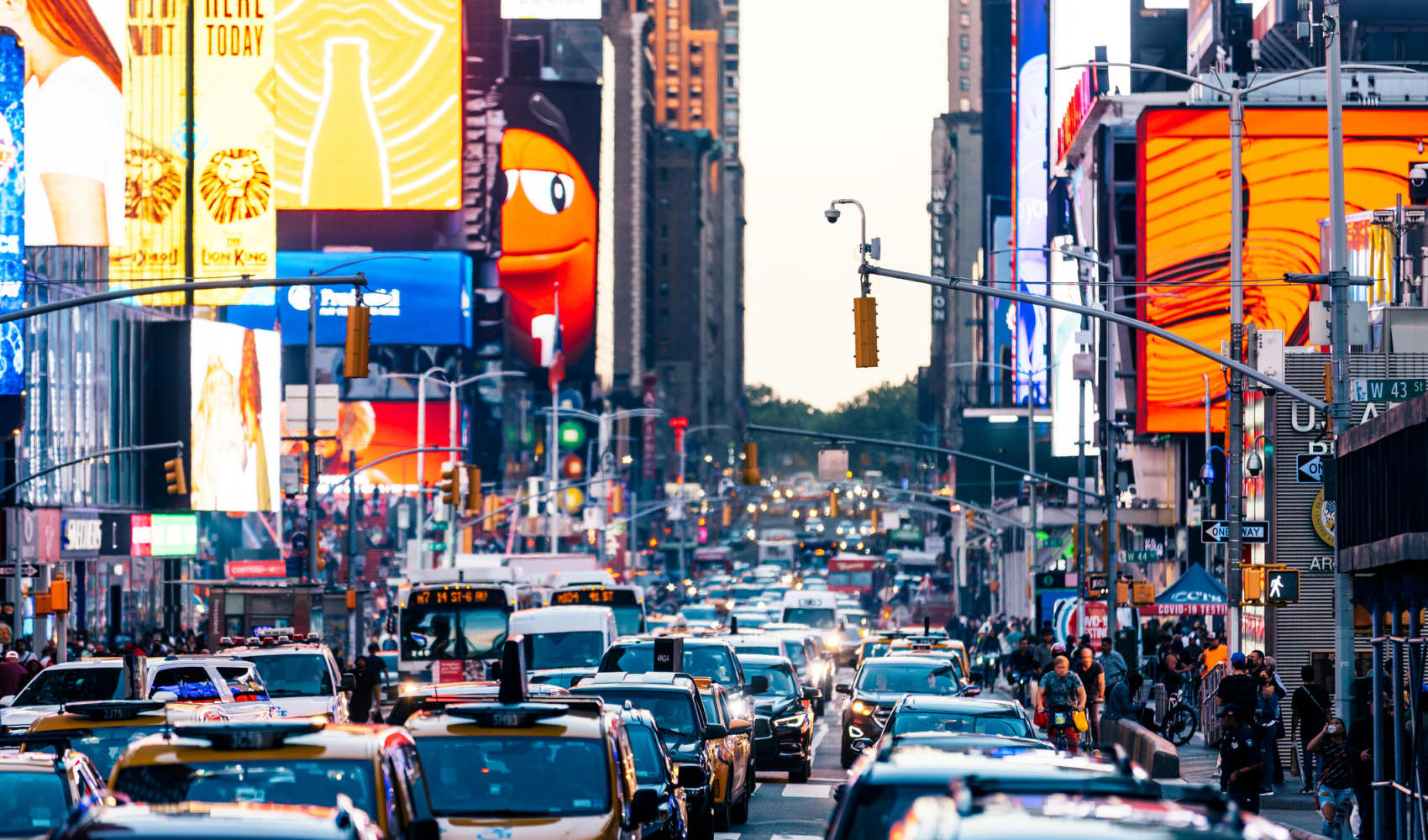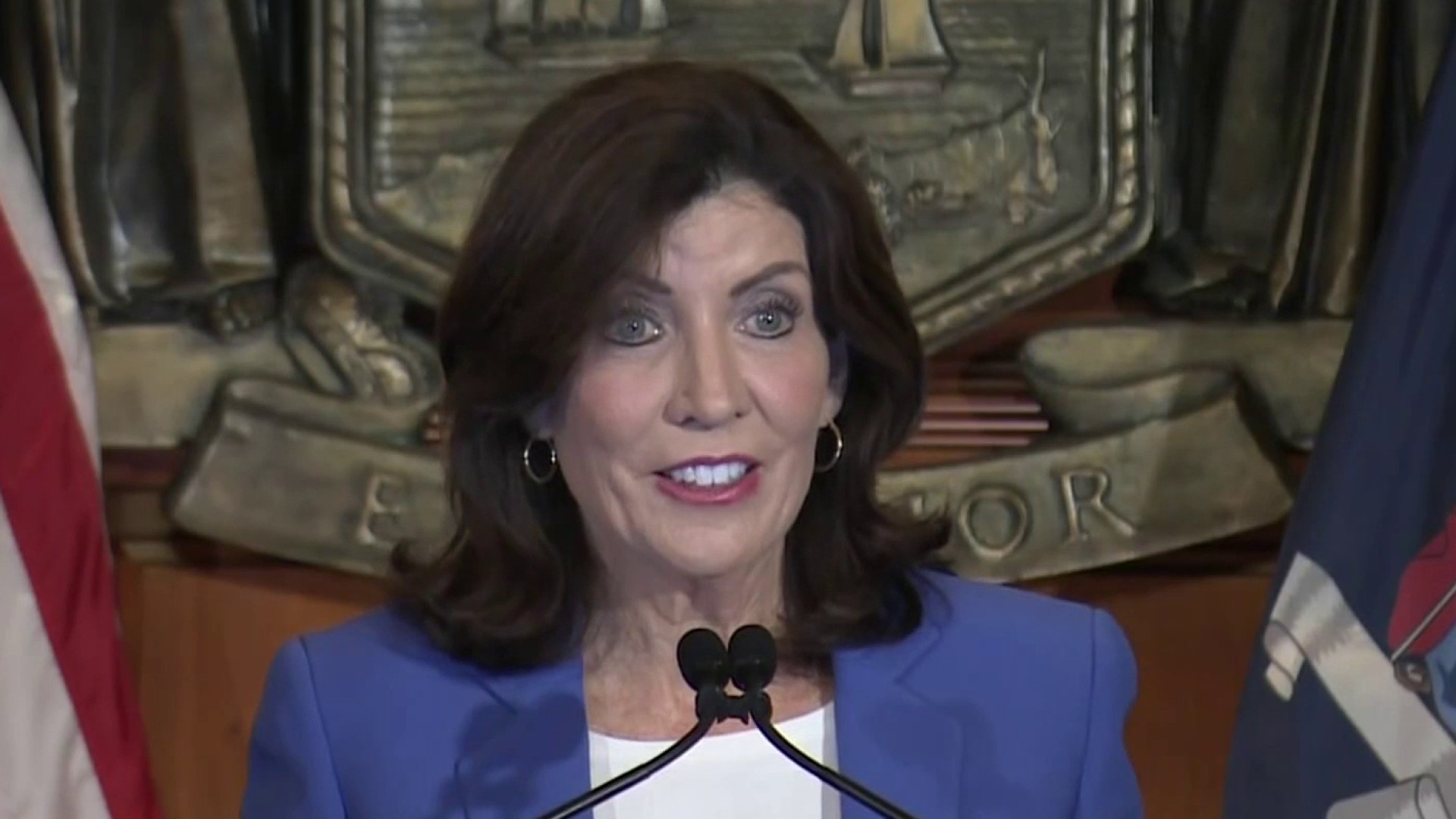The federal government has signed off on final approval for the MTA's congestion pricing plan, which was put on pause more than a week ago by New York Gov. Kathy Hochul.
The move by the Federal Highway Administration on Friday had long been expected, but that was before the decision to halt the plan which Hochul said was done based on the economy, New York City's recovery, hardship concerns for city residents.
In a statement after the decision, the MTA said the agency was "pleased, and not surprised, the federal government has once again determined that congestion pricing will not adversely affect the environment, the economy, or environmental justice communities. This is about reducing traffic in the most congested city in the country, improving health, and allowing buses and emergency vehicles to move faster, while increasing investment in mass transit."
The transit agency said it was "ready and committed" to move ahead with the plan "so New Yorkers can realize benefits of the congestion relief program.”
Get Tri-state area news delivered to your inbox. Sign up for NBC New York's News Headlines newsletter.
The approval comes days after local transit advocates pledged to fight the governor's pause, going to court if necessary.
"Governor Hochul does not have the power to reverse that state statute,” said Michael Gerrard, a Columbia University law professor who’s pursuing multiple lawsuits on behalf of mass transit advocates a week after Kathy Hochul stunned millions of people with a sudden decision to “pause” the nation’s first congestion pricing initiative.
Gerrard said there are several legal avenues to consider. First and foremost, congestion pricing became state law in 2019. And the MTA was set to begin charging tolls under the framework of that law on June 30.
“We believe Governor Hochul has violated several state laws and we are preparing lawsuits to ask the courts to reverse her decision,” said Gerrard.
The congestion pricing fight could trigger what’s called an Article 78 hearing, questioning the state's failure to implement the law, according to Gerrard. There could also be lawsuits for potentially violating the Americans with Disabilities Act and compromising air pollution.
"That is not just illegal. It is an abuse of power," said Elizabeth Adams, of Transportation Alternatives.
Hochul, who emphasized this week that her decision was merely a “pause, not elimination,” had no comment on the legal threat. She did say earlier in the week that she has the right to halt things temporarily.
Her press secretary, Avi Small, said: “Like the majority of New Yorkers, Governor Hochul believes this is not the right time to implement congestion pricing. We can't comment on pending or hypothetical litigation.”
The potential court challenge began taking shape with support from New York City Comptroller Brad Lander.
“The Governor’s sudden and potentially illegal reversal wronged a host of New Yorkers,” said Lander, “who have a right to what was long promised to all of New York: A world class mass transit system that works for everyone.”
Lander said alongside transit advocates that Hochul "took a disastrously wrong turn — we are here to get back on track."
Up next: The MTA board meets on June 26. Some have argued the board could — independently of the governor — implement congestion pricing. If that doesn’t happen, advocates say that would likely spur the lawsuits.
Meanwhile, several groups including the state of New Jersey, have ongoing lawsuits aimed at blocking or further delaying the tolling program.



